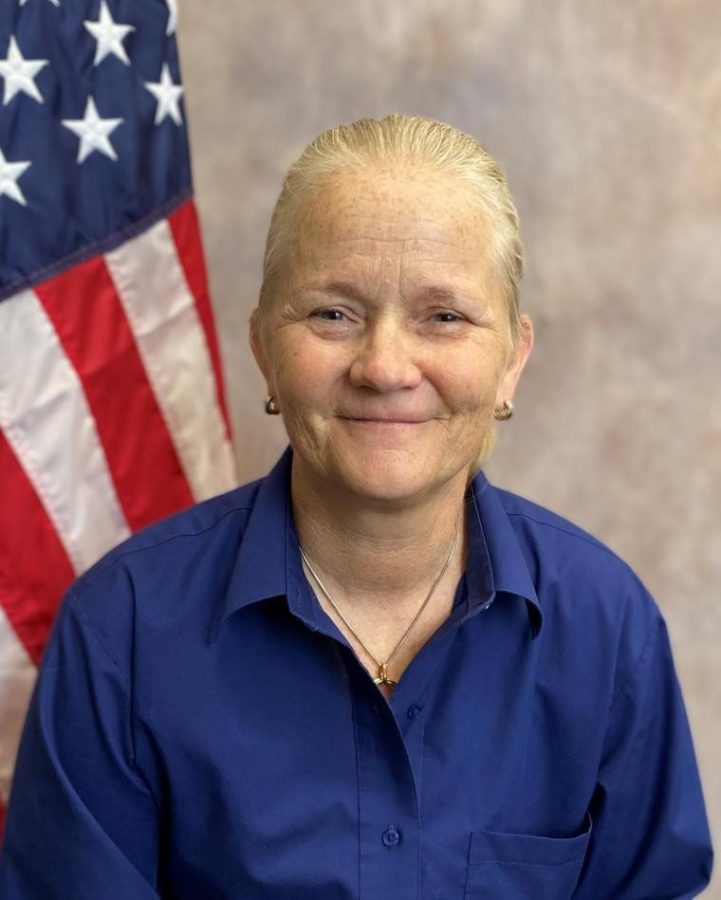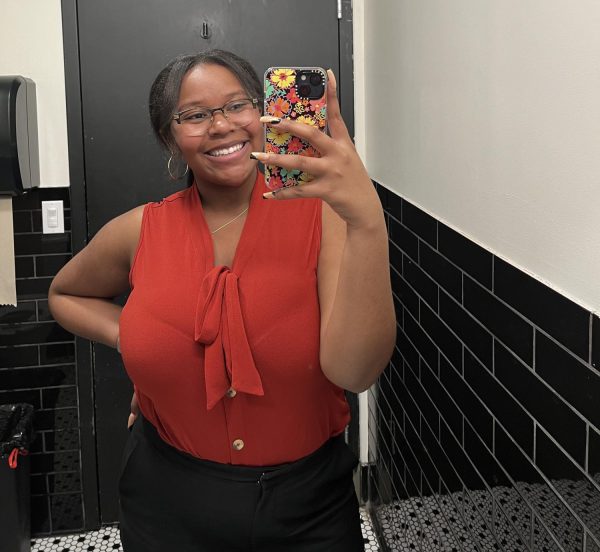Q&A with first female University of Arizona Chief of Police Paula Balafas
April 25, 2022
Paula Balafas began in February as the new chief of the University of Arizona Police Department. After working in Wheat Ridge, Cherry Hills Village and at the University of Colorado Boulder, Balafas’ hiring made her the first female chief of police in UAPD history.
Balafas sat down with the Daily Wildcat to talk about her transition to Arizona, her work, her policing philosophies and what her new role means to her.
Daily Wildcat: How does your work at CU Boulder, and now the UA, differ from that of a traditional police officer?
Paula Balafas: I’ve done both. Most of my career has been spent in Colorado and I worked for a few different municipal police departments there. I also worked for a sheriff’s department in Colorado, and then I went to university policing at the University of Colorado Boulder and I spent five years there.
I would say that the biggest difference is the focus in university policing on educating as opposed to being focused on enforcement. We talk about unintended impact so people understand that their behavior can have impacts on other students or faculty, staff or sometimes our visitors, and just try to explain what that looks like through a higher level lens.
So instead of just writing a ticket and moving on to the next thing, it’s about having a conversation and trying to work through why they should criticize their own behavior.
DW: What made you want to become the next UAPD chief of police?
PB: I went here as a freshman before going back to Colorado, so when the job announcement came through, I just thought that’s the one place I would consider working other than where I currently was. I absolutely thought I would finish my career at CU Boulder.
I wasn’t really looking, but the way the job description for UAPD had been presented was that they were looking for someone who is really good at building community within the police department but also outside of the police department, someone who is open to change who’d been in a progressive environment. And even in my municipal policing experience those agencies had been focused on best practices and changing with the times.
So I thought I’m kind of all of those things so I should put in and see how I’ll do. I had really great interviews with the dean of students and human resources … . There were a lot of people that I interviewed with and I felt like I interacted well with almost everybody. The conversations I was having with people felt really natural and meant to be.
DW: Being a past president of the National Association of Women Law Enforcement Executives, what does being the first female police chief in the UA’s history mean to you?
PB: It means a lot to me! I was president of NAWLEE for two years. [Being president of NAWLEE] gave me a skill set that maybe I didn’t have before. With NAWLEE being a national organization, we would do monthly conference calls, pre-zoom, so it was pretty difficult to get everyone on the same page and try to make decisions, and that can be really challenging.
I had to find new ways to express myself so I think it gave me a really good skill set and made me a better collaborator. I think this experience helped prepare me for thinking more globally and for this position.
DW: What experiences have you had at CU Boulder and in the Wheat Ridge Police Department that you think prepares you for things you may experience here?
PB: There’s been a real focus in the past four or five years on police officer health and wellness. So at Wheat Ridge, I was one of our fitness instructors, and I helped manage our first fitness program. And I’m a huge proponent of physical fitness and wellness, [of] people who are in a good place personally, physically and emotionally, then bring that to the job.
At CU Boulder, we found a police psychologist that allowed all of our officers three mental health visits per year and after a while, it extended to family members. I would send people to more training rather than less training because I would rather have someone with way more knowledge, skills and abilities going into situations, and that’s the approach I want to take here at the UA.
DW: What do you have planned for your tenure at the UA? Any special initiatives or programs you would like to implement?
PB: Something we’re gonna start working on is a new vision statement, mission statement and core values. We mirror the university’s right now, but I think it would help with department unity to try and have our own vision, mission and core values.
There was a report released last year called the Margolis Healy report. During my onboarding, I read it several times, and they had made very specific recommendations on things they would like to see changed that they thought would increase the department’s credibility, its ability to engage with the community and its ability to have conversations.
I really like what they identified as issues that the department should focus on … . I want to be able to go through that report and be able to say that we did everything that they recommended that we could do that we thought was the right thing for the department.
RELATED: Elected officials and thousands more call for national action at pro-choice rally
DW: What diversity training have you been through throughout your career and how would you implement what you have learned in the past at the UA campus?
PB: At CU Boulder, diversity, equity and inclusion training is required every year. This wasn’t initially required but the police department required everyone to go every year because we didn’t want to lose these skills, and if you aren’t constantly working on [them] then that’s a possibility. I’m not sure if the UA is currently doing that, but if they aren’t then I would like for us to do so because I think it’s very important.
DW: What are UAPD’s plans to ensure all students feel protected when historically underrepresented identities often feel persecuted on campus?
PB: I’ve been doing one-on-one meetings with my officers, and a lot of my officers miss being able to go to multicultural centers and be invited to these spaces because they feel like they aren’t wanted there anymore. They desperately want to be a part of the conversation but they feel as though they’ve been told by some members of our campus community that they’re not wanted.
I’m hoping that we’ve turned a corner as a campus community so we can have these conversations again and we can rebuild these bridges. I think it would be good for everyone to mend this divide.
DW: Why is there a lack of security cameras in the parking garages despite crimes that take place within them?
PB: I do think it’s important to have them, but there’s this perception that not everyone sees cameras the same way. I worry that there are members of our campus community who think we already have too many cameras.
I think having more cameras, especially in places like parking garages where there tends to be more property crimes would be a good thing. What I ran into at CU Boulder, and what I’m pretty sure is true here, is that the police department isn’t the only point of contact for cameras.
I think there is more than one entity on campus that has their own camera systems. At CU Boulder, the libraries might have their own security system, there could be different security systems for athletics, at the student union, and so I think there should be conversations here about how we can pull all that together.
DW: What are UAPDs plans to combat the number of minor in possessions [of alcohol] on campus?
PB: What I learned at CU Boulder is that our MIP tickets went through the county court. One of our judges did research on recidivism rates and what she found was that if the police gave too many warnings early in the semester, students tended to re-offend, and re-offend and re-offend. But if the police issued a ticket initially and then they got into some sort of counseling or awareness classes, then they would see the unintended impacts of their drinking or drug usage.
The message we got from the court was that enforcement in the early part of the semester was good because it made people take notice that if they have continued violations then the fines would go up. At CU Boulder, and I believe here too, students might get a ticket for something but they also have to go through the conduct process and students usually get a lot out of this process.
DW: How do you deal with stressful situations in your line of work? Especially with college students?
PB: At Wheat Ridge, I had a couple of pretty serious injuries, things like broken bones usually from fights where I had to defend myself. So stress for me at Wheat Ridge was usually coming back from injuries.
At CU, it was more logistical. We would have concerts that might get a little out of hand. We’d have field or court rushes after football or basketball games. So it’s mostly about managing things so people don’t get hurt. The focus itself is just different. In Wheat Ridge, it was more critical incident driven, whereas at CU it was about keeping things safe for everybody.
Stress is different for each person but I try to remember that if someone is having a bad day, whether that’s an employee here or students, that I give them the space to have that bad day and try to mitigate my own stress so that I don’t create a bad day for someone else.
Follow Kiara Adams on Twitter




